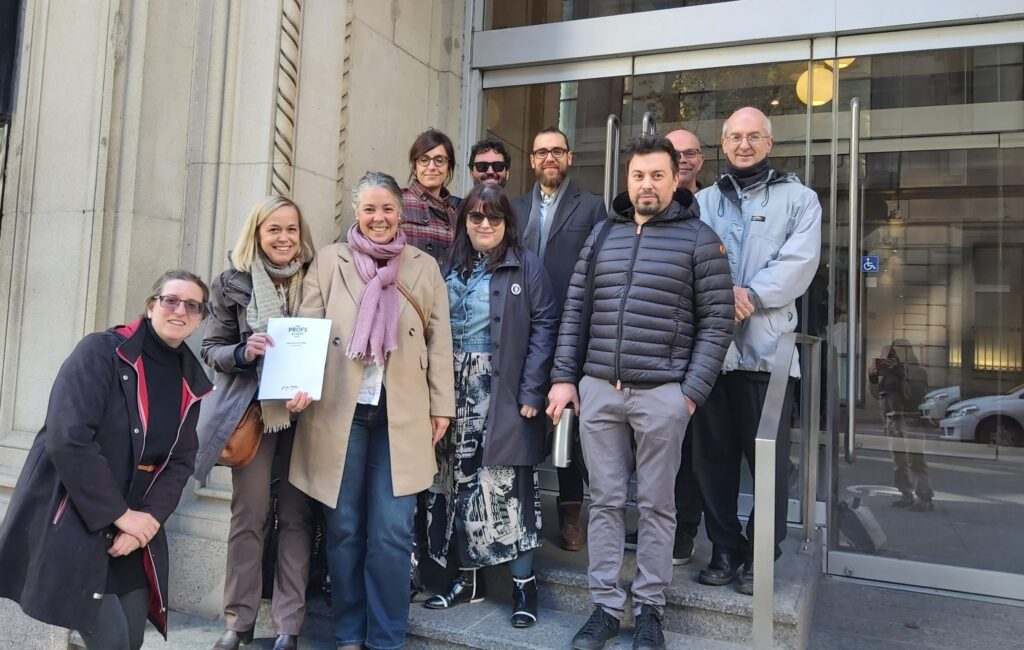Sectoral negotiations start up
Takeaway
The ASPPC Negotiating Committee formally tabled its initial list of demands at a meeting with management on October 21. Its counterpart, the Comité patronal de négociation des collèges (CPNC), is to table its offer by the end of December.
Next steps
All ASPPC member unions are encouraged to organize local actions to publicize the demands the unions are bringing to the bargaining table. Judging by the actions already carried out at our institutions, Teachers United is off to a good start!
Watch
We encourage you to watch and distribute our first Flash négo video. It was shot in front of the CPNC’s offices when we tabled our demands. It’s available on the Facebook pages of our two organizations.
On October 21, the Alliance des syndicats des professeures et professeurs de cegep (ASPPC) submitted the initial list of union demands to the management negotiating committee, the Comite patronal de negociation des colleges (CPNC). After extensive consultations, the demands were adopted by the members of the 61 CEGEP teachers’ unions. They reflect the profession’s needs at a time when the provincial government is saying it wants to make education a priority.
The meeting kicked off the negotiations on working conditions for all CEGEP teachers in Québec. In view of the major challenges facing the college system, it made more sense than ever to join forces in this bargaining round. From the need to help as many students as possible succeed given the current labour scarcity, to the pitfalls of the rush to digital triggered by the pandemic, one thing is clear: If the government is serious about supporting education, it needs to do a better job of supporting teachers.
CEGEP teachers' alliance tables demands
By 2030, the bulk of new jobs will require at least a college diploma. Once again, the CEGEPs will have a central role to play in the challenges facing Québec society. The ASPPC is proposing solutions to keep the CEGEPs strong into the future by drawing on the expertise of teachers. But for teachers’ skills to be used to full advantage, issues such as precariousness and excessive workloads must be addressed.
“Lasting improvements to conditions of learning and teaching can be achieved only with adequate, better targeted and more stable resources, combined with better recognition of our profession,” said Yves de Repentigny, vice-president of the FNEEQ-CSN, and Youri Blanchet, president of the FEC-CSQ. “The math is simple: we need more time to teach and to help our students succeed.”

Local mobilization gets rolling
At CEGEPs across Québec, we can see things are stirring. In addition to the proliferation of Teachers United items (hats, T-shirts, signs, electronic signatures, etc.), the local mobilization committees have been very creative in gearing up for this bargaining round.
Among other things, our demands have been delivered directly to the administrations at a number of CEGEPs. Bear in mind that the colleges will be providing input throughout the negotiations. Pascale Déry, the new Minister of Higher Education, will also be approached.
We will be watching her first moves at the head of the Ministry closely. We will also be watching for the employer’s offer, which is supposed to be tabled within 60 days of ours. At the next ASPPC meeting on November 24 and 25, delegates from the 61 CEGEP teachers’ unions will continue their work to improve the conditions under which we practice our profession.

